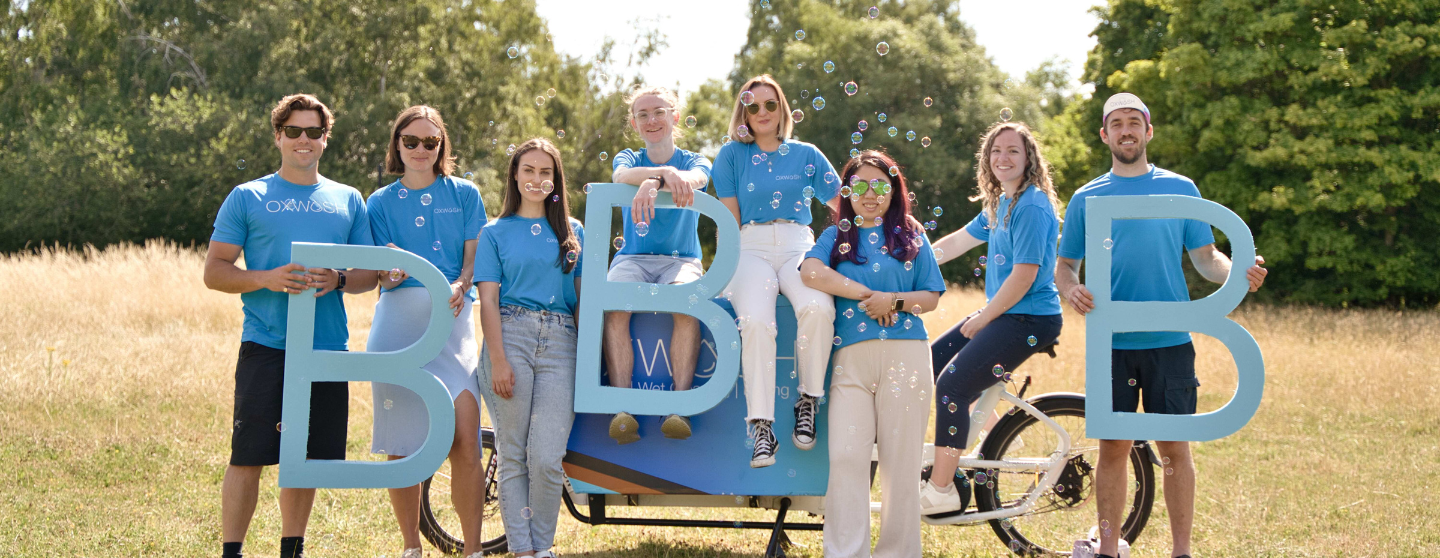

Oxwash Ltd

Wiltshire, United Kingdom
July 2022
Laundry & dry-cleaning
Service with Significant Environmental Footprint
United Kingdom
Oxwash was founded in 2018 by Dr Kyle C Grant, armed with just a bike and a backpack The eco-friendly laundry service utilises space-age technology to provide customers with a highly convenient service - that doesn’t destroy the planet. The model is simple, customers place an order online, choose a collection and drop off time and place, and Oxwash collects, washes and delivers, all in house. Oxwash is harnessing the power of science to overhaul the industry. Traditional methods can only go so far, and have taken their toll on the planet. Using ozone technology for disinfection maintains the integrity of the items received, by washing at low temperatures but destroying bacteria, viruses and allergens. Oxwash has a strategic partnership with Reckitt’s heritage clothes care brand Vanish. The ‘Oxwash, powered by Vanish’ partnership means the sustainable laundry service uses the new Vanish sustainable formula – Vanish 0% - to help give old clothes a new life, preventing tonnes of clothes from ending up in landfill. Nine out of ten pieces of clothing end up in landfill long before they should and up to 70 percent of clothing waste could have been prevented with better care habits.
Overall B Impact Score
Governance 17.2
Governance evaluates a company's overall mission, engagement around its social/environmental impact, ethics, and transparency. This section also evaluates the ability of a company to protect their mission and formally consider stakeholders in decision making through their corporate structure (e.g. benefit corporation) or corporate governing documents.
What is this? A company with an Impact Business Model is intentionally designed to create a specific positive outcome for one of its stakeholders - such as workers, community, environment, or customers.
Workers 26.5
Workers evaluates a company’s contributions to its employees’ financial security, health & safety, wellness, career development, and engagement & satisfaction. In addition, this section recognizes business models designed to benefit workers, such as companies that are at least 40% owned by non-executive employees and those that have workforce development programs to support individuals with barriers to employment.
Community 16.0
Community evaluates a company’s engagement with and impact on the communities in which it operates, hires from, and sources from. Topics include diversity, equity & inclusion, economic impact, civic engagement, charitable giving, and supply chain management. In addition, this section recognizes business models that are designed to address specific community-oriented problems, such as poverty alleviation through fair trade sourcing or distribution via microenterprises, producer cooperative models, locally focused economic development, and formal charitable giving commitments.
Environment 46.0
Environment evaluates a company’s overall environmental management practices as well as its impact on the air, climate, water, land, and biodiversity. This includes the direct impact of a company’s operations and, when applicable its supply chain and distribution channels. This section also recognizes companies with environmentally innovative production processes and those that sell products or services that have a positive environmental impact. Some examples might include products and services that create renewable energy, reduce consumption or waste, conserve land or wildlife, provide less toxic alternatives to the market, or educate people about environmental problems.
What is this? A company with an Impact Business Model is intentionally designed to create a specific positive outcome for one of its stakeholders - such as workers, community, environment, or customers.
Customers 2.5
Customers evaluates a company’s stewardship of its customers through the quality of its products and services, ethical marketing, data privacy and security, and feedback channels. In addition, this section recognizes products or services that are designed to address a particular social problem for or through its customers, such as health or educational products, arts & media products, serving underserved customers/clients, and services that improve the social impact of other businesses or organizations.